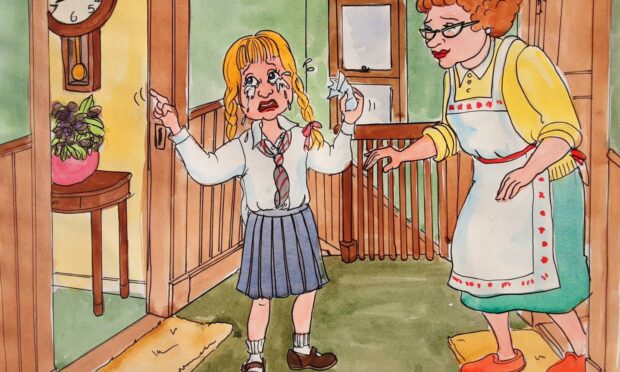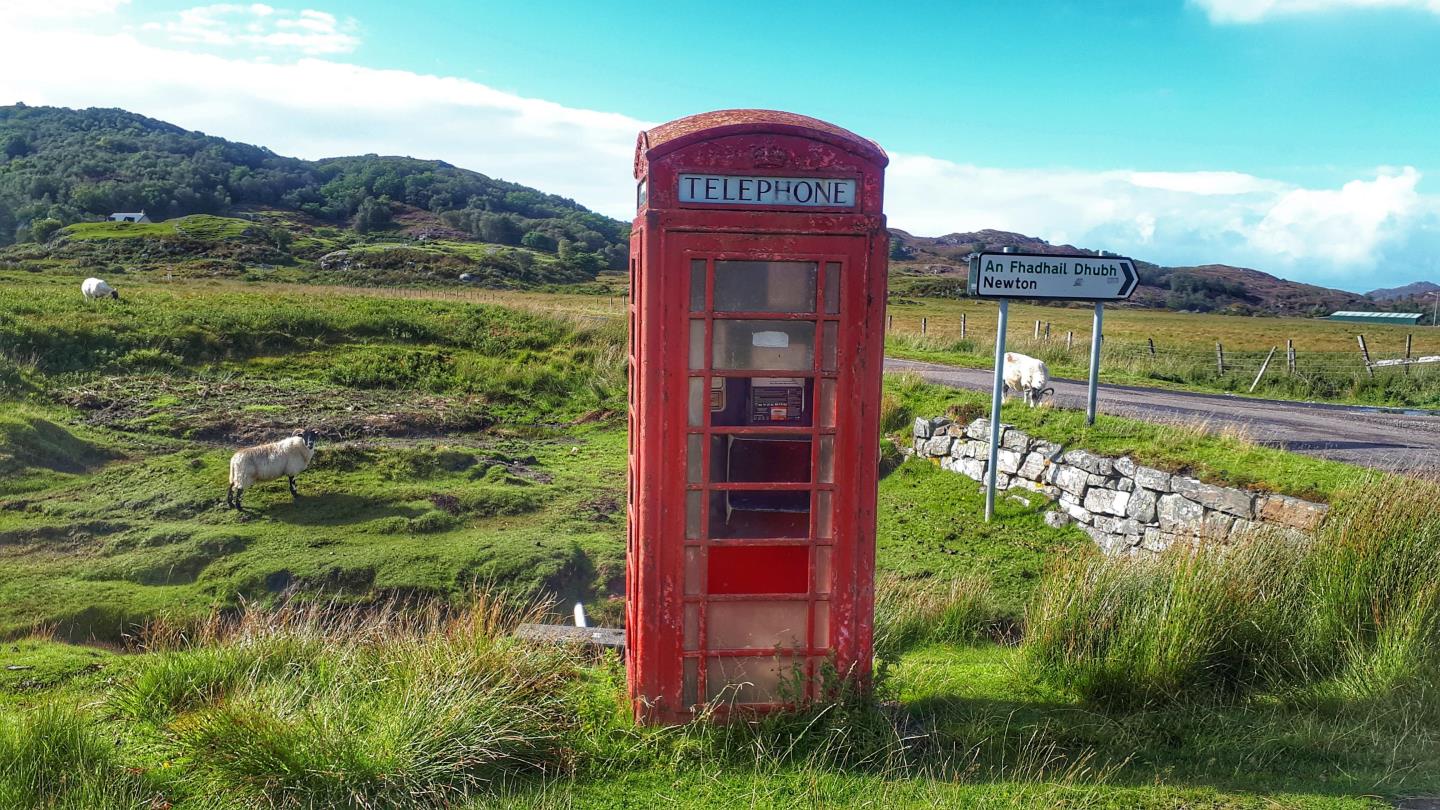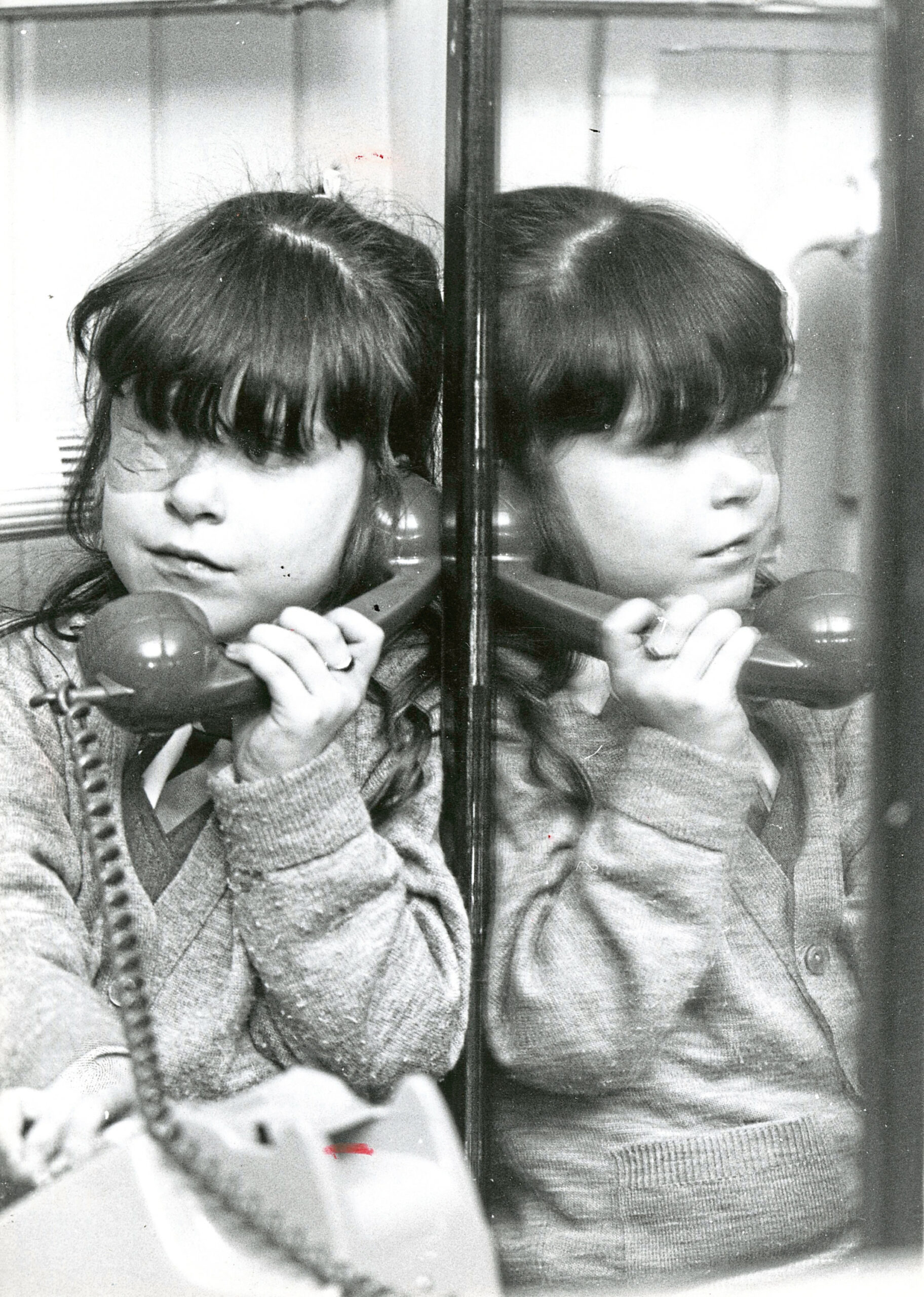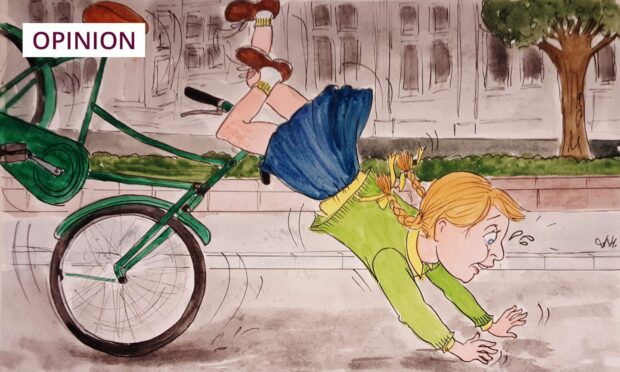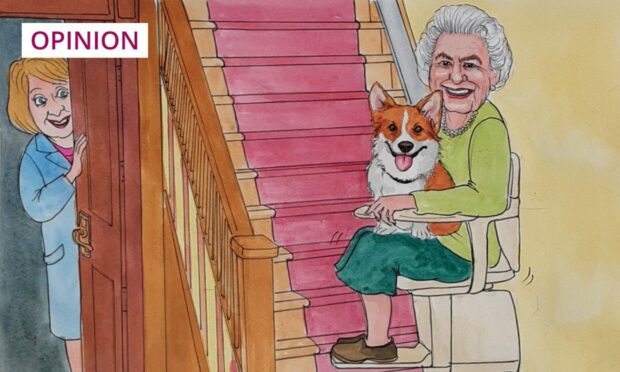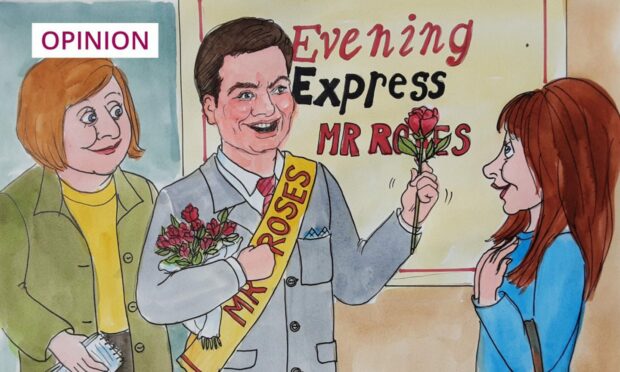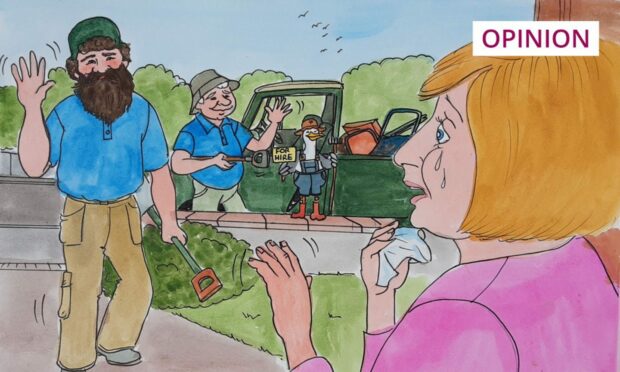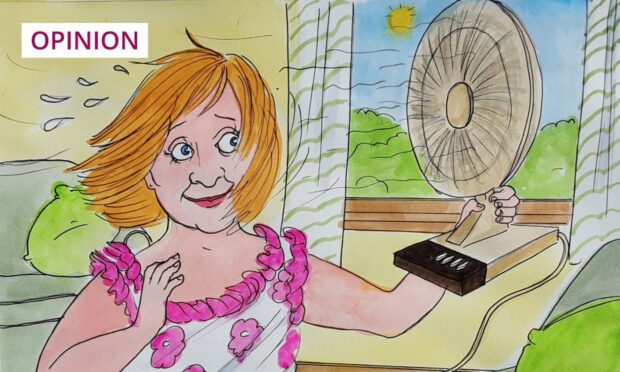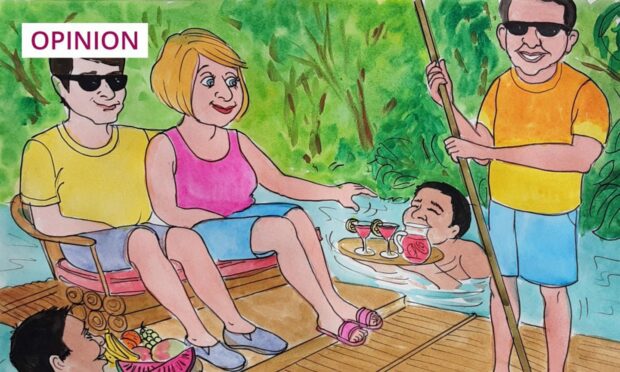What a brilliant question from my granddaughter the other day.
For her school project, she wanted to know how the telephone had changed my life and when. Once I made the calculation, the answer fair shocked me, never mind her and my quine.
Ye gods, because mum reckoned we couldn’t afford it before, we didn’t get a phone in our Watson Street attic flat until 1971, when I was a whopping 23. How did we survive without one? Like thousands of other families, we didn’t actually feel in the least deprived.
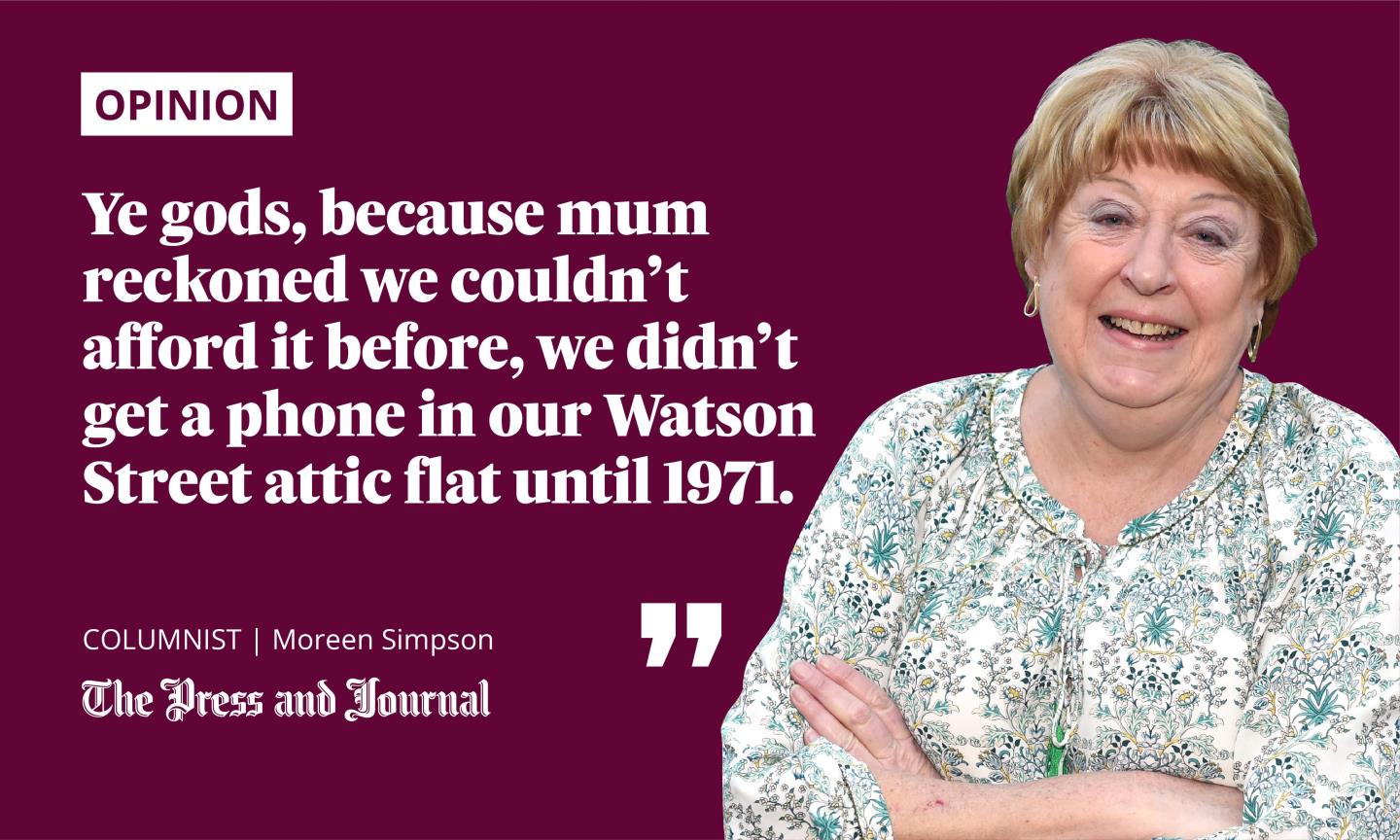
Only in hindsight can I imagine how hugely inconvenient it must have been. Mind you, we were lucky having two public phone boxes right across the road. So, if you woke up ill and needed the doctor, you’d bung on a coat and head ootside.
Those were the great old days when you phoned your GP in the morning, and he’d be by your bedside before noon, even though all you had was a sair throat. You couldn’t call home to say you’d be late. Oh, the misery when mum, normally back from work at 6pm, was still missing at 7pm.
Ten-year-old (only child) Mo was convinced she’d been in an accident. Hysterical, I banged on the (also phoneless) neighbours’ door across the landing, tears flooding, where I remained, sobbing frantically, until she appeared at 8pm, having had to work late.
The end of telephonic isolation
As teenagers, in our gang of four, only one had a phone, so we’d call her from public boxes to pass on times and places to meet. No endless confabs, but worked a treat.
It wasn’t until I was older that two incidents highlighted our telephonic isolation with a vengeance. While I was a mother’s “help” in London during the summer break from uni, mum – who’d to keep bussing over to King’s College to get my exam results – phoned to break the news I’d to resit my English Language.
What an image: this affa academic linguistics prof upping oor five flights of stairs to discuss Medieval English with my mum
Next day, she phoned again: “Last night a posh wifie with long hair and specs came to the door for you. She said you didn’t fail after all. You’ve to phone her.” Turned oot, my Medieval English paper had been lost, but when it was found and marked, I had passed.
What an image: this affa academic linguistics prof upping oor five flights of stairs to discuss Medieval English with my mum.
Now 1971, a new cub reporter with the EE, start time (amazingly) 9am. I was still in bed zonko at 9.30am when came a thunderous knocking. Goonie on, curlers in, I opened the door to find the chief reporter in furious-mode because I’d slept in.
As he left, he spat: “And I suggest you get yourself a phone in case we need you in an emergency.” Yes sirree. I bought it with one of my first pay packets.
Just as well. Only a pucklie months later I met my first hubby (father of my babes). I could tell he wisnae exactly utterly under my spell after our blind date.
Vaguely, he said he’d gie me a phone, so I proudly proffered my new number. I know for a fact, there’s no way Jose he’d have peched up the five floors to ask me oot again.
Moreen Simpson is a former assistant editor of The Press & Journal and started her journalism career in 1970
